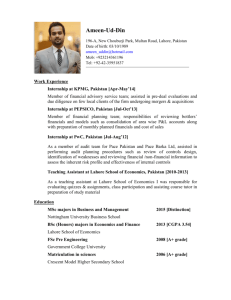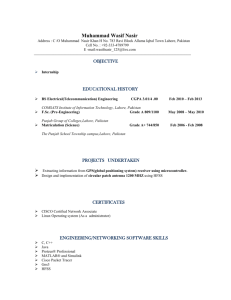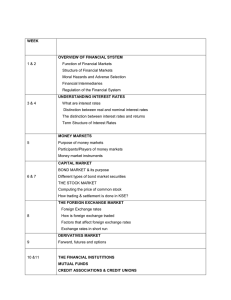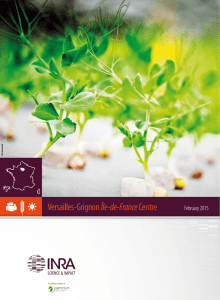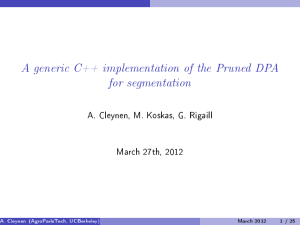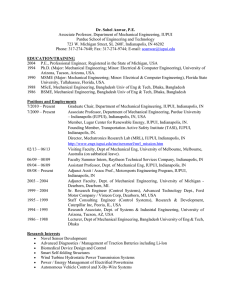Proceedings of 8th Annual London Business Research Conference
advertisement
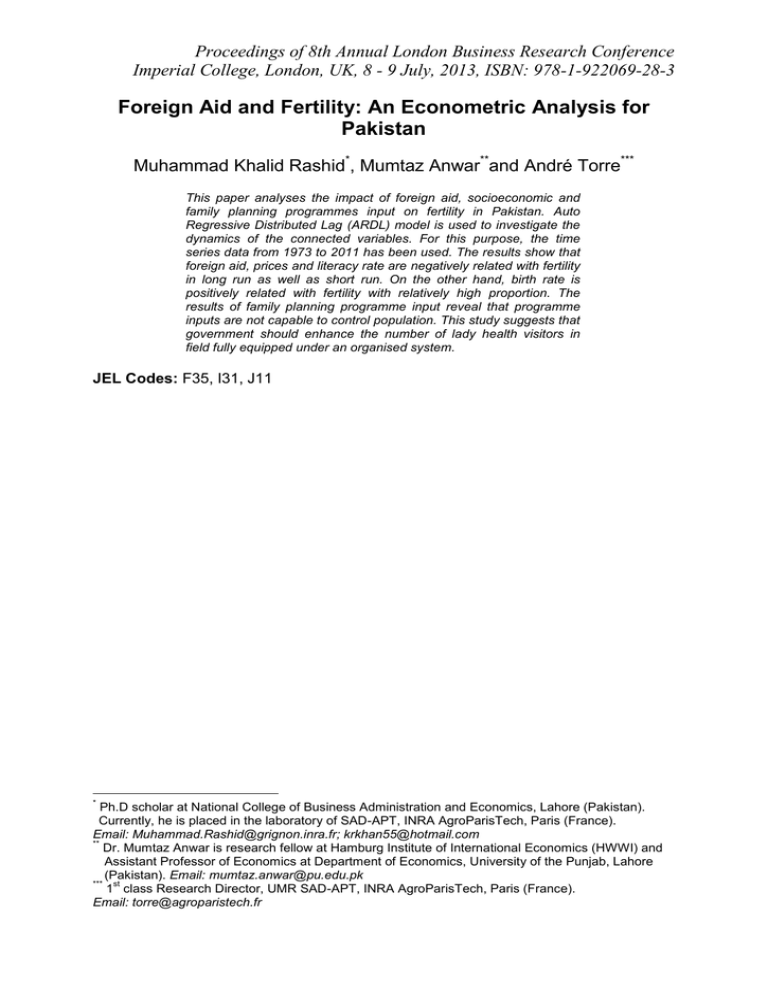
Proceedings of 8th Annual London Business Research Conference Imperial College, London, UK, 8 - 9 July, 2013, ISBN: 978-1-922069-28-3 Foreign Aid and Fertility: An Econometric Analysis for Pakistan Muhammad Khalid Rashid*, Mumtaz Anwar**and André Torre*** This paper analyses the impact of foreign aid, socioeconomic and family planning programmes input on fertility in Pakistan. Auto Regressive Distributed Lag (ARDL) model is used to investigate the dynamics of the connected variables. For this purpose, the time series data from 1973 to 2011 has been used. The results show that foreign aid, prices and literacy rate are negatively related with fertility in long run as well as short run. On the other hand, birth rate is positively related with fertility with relatively high proportion. The results of family planning programme input reveal that programme inputs are not capable to control population. This study suggests that government should enhance the number of lady health visitors in field fully equipped under an organised system. JEL Codes: F35, I31, J11 * Ph.D scholar at National College of Business Administration and Economics, Lahore (Pakistan). Currently, he is placed in the laboratory of SAD-APT, INRA AgroParisTech, Paris (France). Email: Muhammad.Rashid@grignon.inra.fr; krkhan55@hotmail.com ** Dr. Mumtaz Anwar is research fellow at Hamburg Institute of International Economics (HWWI) and Assistant Professor of Economics at Department of Economics, University of the Punjab, Lahore (Pakistan). Email: mumtaz.anwar@pu.edu.pk *** st 1 class Research Director, UMR SAD-APT, INRA AgroParisTech, Paris (France). Email: torre@agroparistech.fr
